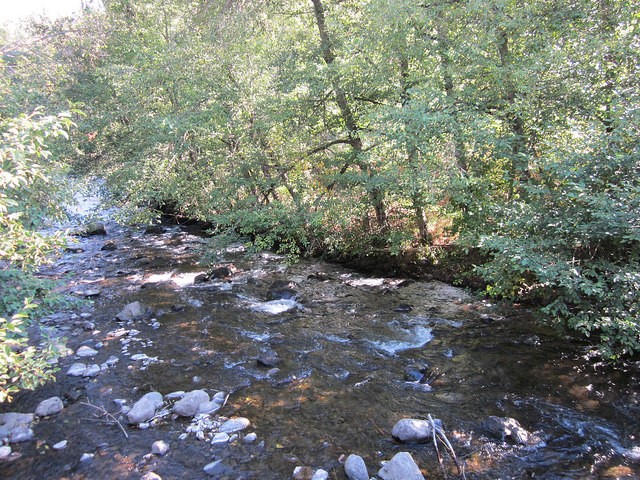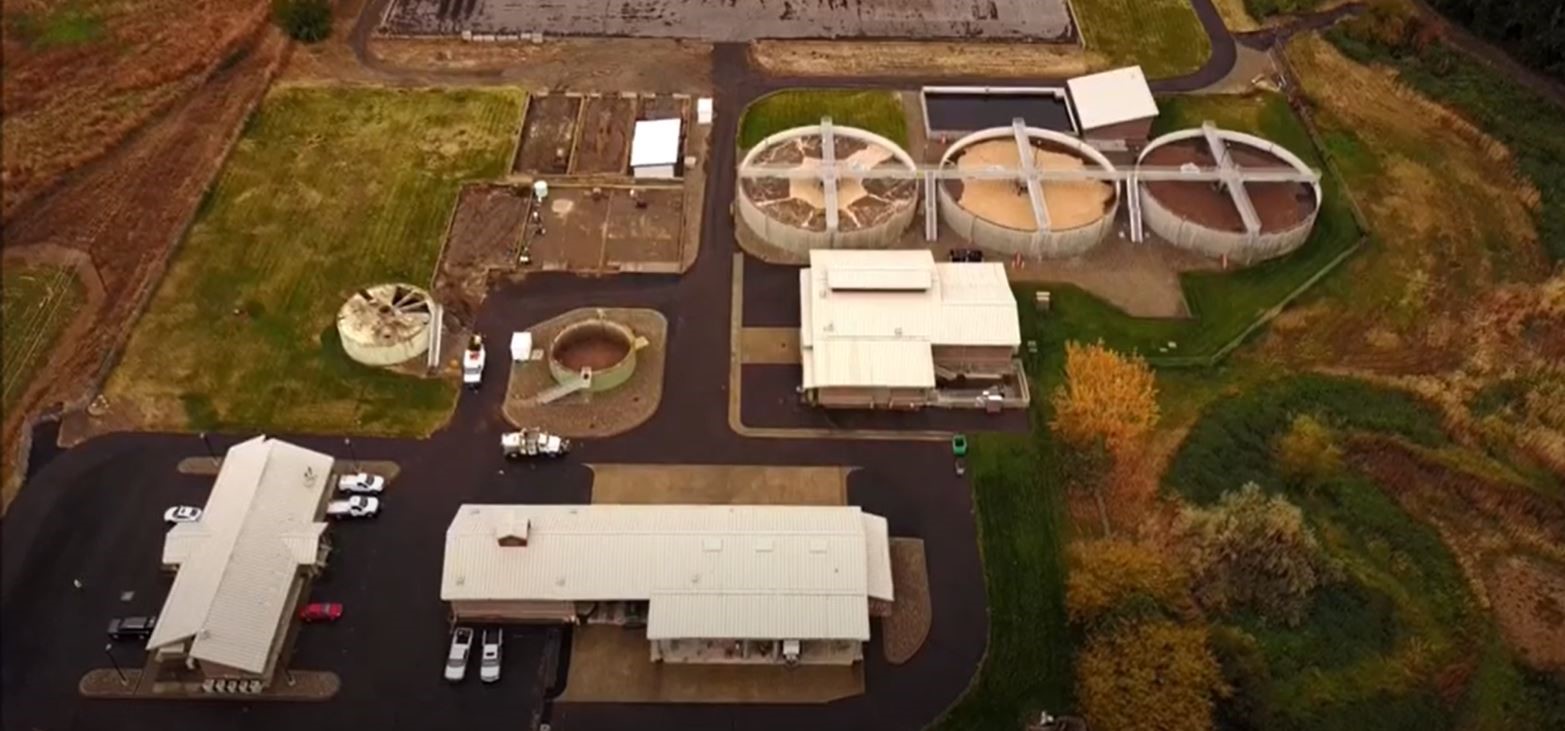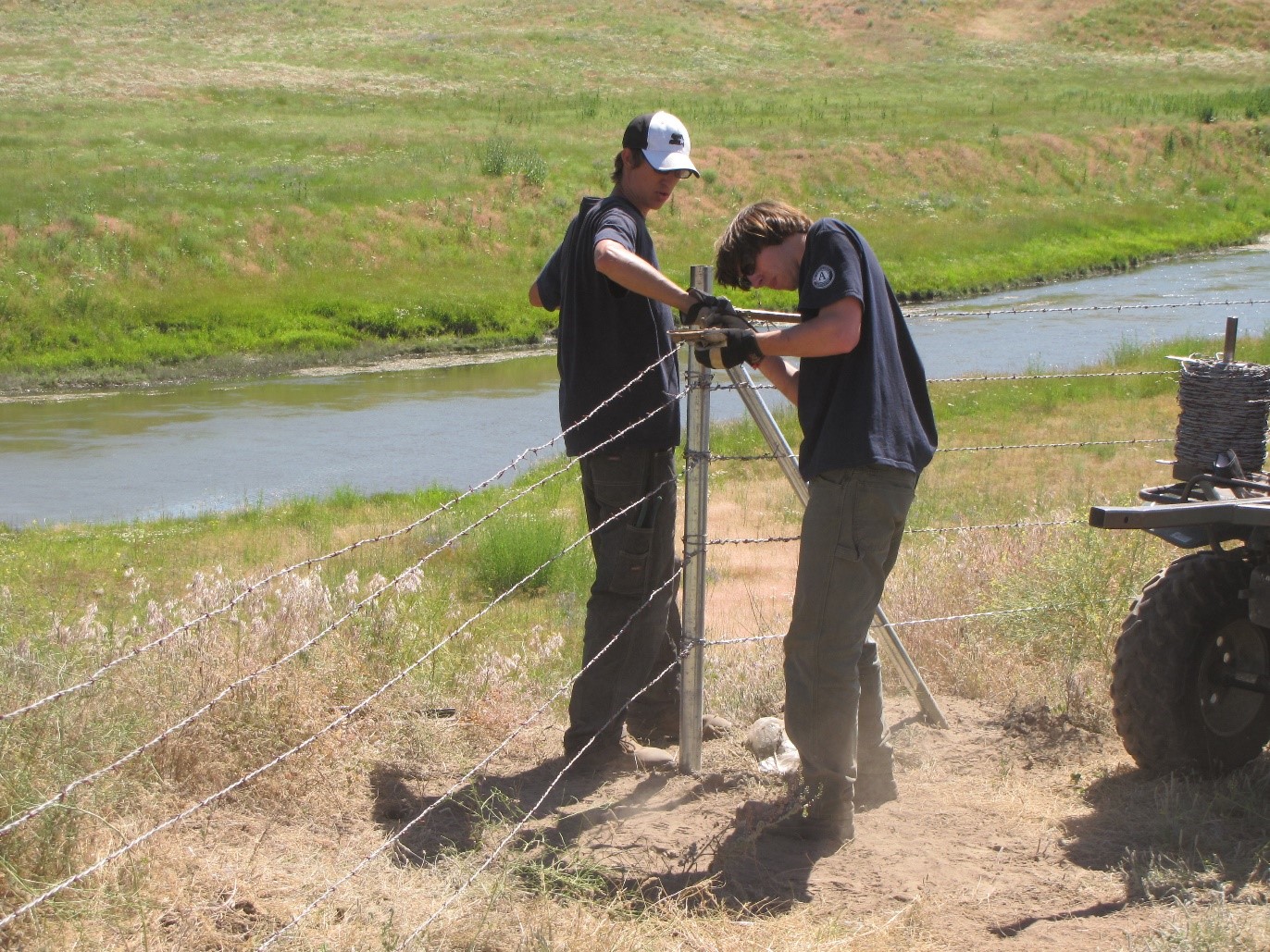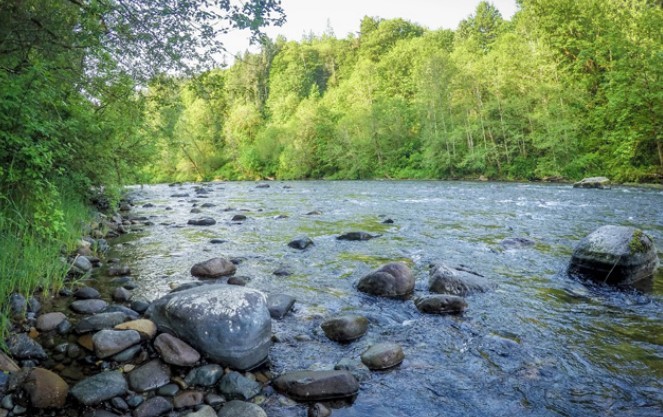
We're awarding $317 million in grants and loans for 124 high-priority clean water projects across the state. Our Water Quality Combined Funding Program supports local communities by helping them upgrade wastewater treatment and sewer systems, manage polluted stormwater, and complete a variety of other projects to prevent and clean up diffuse sources of pollution, also known as nonpoint pollution.
In 2021, President Biden signed the Bipartisan Infrastructure Law and reauthorized the Capitalization Grant, which resulted in significant funding increases for the Clean Water State Revolving Fund (CWSRF). The increased funding allowed us to award larger amounts in loans and forgivable loans, especially to support small, financially-challenged community projects. Forgivable loans do not have to be repaid.
“The increased federal and state investments in clean water infrastructure will improve water quality and public health protection for all Washingtonians," said Jeff Nejedly, Ecology’s Water Quality Financial Assistance Manager. "Focusing funding in small, financially-disadvantaged communities is a priority that supports water quality, equity, and economic vitality.”
The new federal funding has allowed us to streamline the funding process. Projects that have already been evaluated, ranked, and awarded funds for planning and design do not have to re-apply for more funding for the construction phase of the project. We're funding three additional wastewater projects that met this criteria and are ready to proceed to the next phase.
Nearly 90% of funding the Water Quality Program receives is passed through to local communities for environmental and infrastructure projects. Our clean water funding comes from a mix of state and federal funds dedicated for water quality improvements and protection. State financial managers calculate that 12 direct and indirect jobs are created in Washington for every $1 million spent on building clean water infrastructure. That means this round of grants and loans could result in more than 3,800 jobs.
Clean water project highlights
Wastewater
Thirty-one wastewater projects are awarded approximately $268 million in grants, low interest loans, and forgivable loans. Funding for small, financially-challenged communities is a top priority of the new federal funding. Seven of the projects qualify for special construction hardship assistance to ensure they will not overly increase the sewer bills for residents in small, financially-challenged communities. Twelve projects are awarded preconstruction hardship funding that includes a combination of loan and forgivable loan to help offset financial impacts of planning and designing sewer projects. In addition, four of the projects are to refinance high interest rate loans in small, lower-income communities; the refinancing will substantially improve the financial condition of the wastewater funds in these communities. The top three ranked wastewater projects are:
The current wastewater treatment facility for College Place will be expanded into a newly purchased lot. Check out the city's website for more information about the project.
- College Place in Walla Walla County is awarded a $10 million forgivable loan and a $16 million low interest loan to construct upgrades and expansion of its wastewater treatment facility. The project will result in improvements to water quality in Garrison Creek and the Walla Walla River. It is needed in part to meet requirements in the 2008 Walla Walla Watershed Total Maximum Daily Load Plan.
- Eastsound Sewer and Water District in San Juan County will receive a $1.77 million grant, a $3.47 million low interest rate loan, and a $200,000 forgivable loan to upgrade its existing wastewater treatment plant to address aging equipment, future flows and loading capacity, and discharge permit requirements. The funding is for Phase 2 of the project. Ecology provided funding for Phase 1.
- City of Brewster in Okanogan County will receive of $1.1 million in low interest loan and $870,000 in forgivable loan for repair and replacement of aging and undersized sewer collection system and treatment plant components that are past their useful life and causing maintenance and water quality problems.
Nonpoint
Forty-six projects will receive a total of $12.2 million in grants to address nonpoint pollution, including that from onsite sewage systems. Nonpoint pollution has a significant impact on water quality; it comes from diffuse sources instead of an identifiable pipe. The two highest ranked nonpoint projects are:
This previous project installing a fence to keep livestock out of a tributary in the Hangman watershed is one example of best management practices this grant may fund.
- The Spokane Tribe of Indians will receive a $193,401 grant to implement maintenance, riparian restoration, and livestock best management practices to address high priority water quality issues at sites in the Colville, Little Spokane, and Hangman watersheds. These projects will help implement the 2018 Settlement Agreement between Ecology and the Spokane Riverkeeper.
- King County will receive a $135,300 grant to revegetate 8.5 acres of riparian shoreline along the Green/Duwamish River at Horsehead Bend Natural Area to address high summer water temperatures and to improve fish and wildlife habitat. This project site was identified as having a critical need for tree shade in the Muckleshoot Indian Tribe’s riparian sun/shade maps. Planting this site will help implement recommendations from Ecology’s 2011 Green River Temperature Total Maximum Daily Load Report.
Stormwater
Forty-seven communities and port districts will split $34 million in grants, low interest loans, and forgivable loans to implement projects to manage and reduce stormwater pollution. The two highest ranked stormwater projects are:
The Green River riparian area has several natural sections but also developed areas that need restoration, especially in the lower part of the river.
- Tukwila in King County will receive a $1.18 million grant to improve water quality in the Green-Duwamish River through the installation of conveyance and stormwater treatment facilities for two outfalls along Interurban Avenue South and Tukwila International Boulevard at Riverton Creek. The project will provide enhanced water quality treatment for total suspended solids and metal pollutants for approximately 3.1 acres of roadway runoff from two arterial roadways. The project is included in the city’s 2013 Surface Water Comprehensive Plan.
- Asotin County is awarded a $824,500 grant to improve water quality in the Snake River through the construction of water quality facilities at the Ridges subdivision in the urbanized area of Asotin County. The project will provide treatment for total suspended solids (TSS), oil (total petroleum hydrocarbons), dissolved copper, and dissolved zinc in addition to reducing flows to Snake River by increasing stormwater infiltration.
If you have questions, please contact Eliza Keeley-Arnold at eliza.keeley-arnold@ecy.wa.gov or 360-407-6510.
More information
For more information, including access to an interactive map of funded projects and access to the draft list please visit the Water Quality Combined Funding Program Funding Cycles webpage.




